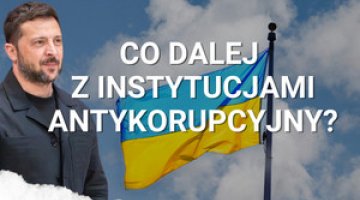Moscow’s stance on the election in Ukraine
Russia has declared that it will recognise the election in Ukraine. The Russian Minister of Foreign Affairs, Sergey Lavrov, has expressed that he expects an undivided government to be formed in Kyiv that will represent Petro Poroshenko’s political approach; Moscow sees the current president of Ukraine as a partner concerning the implementation of the Minsk Accords. Russia’s press and politicians have been focusing their comments on alleged violations of the electoral process, occasionally going so far as to brand it a farce. They are pointing to the pressure that a civil war puts on voters, the exclusion of Donbas from the election and the fact that refugees were unable to vote. The reason they give for why the election has been recognised despite the reservations regarding its validity is that they want to respect the rule of non-interference with Ukraine’s internal affairs. The thesis that the election has given the government in Kyiv formal but not genuinely democratic legitimacy is being repeated. The Russian press are concentrating on elections in the so-called Donetsk and Luhansk People’s Republics (scheduled for 2 November). The Kremlin’s spokesman, Dmitry Peskov, has already announced that Russia will recognise the results of the election in Donbas.
Commentary
- The results of the election in Ukraine are not good for Moscow. The outcome is the price Russia needs to pay for its policy towards Ukraine. The victory of the moderate pro-European forces stabilises the political situation and strengthens the government in Kyiv. The strong position of the grouping led by Arseniy Yatsenyuk, who prefers to take a hard-line approach when dealing with Russia, will make it more difficult to impose Poroshenko the Russian conditions to end the crisis. The low level of support for the radical groupings, the Right Sector and Svoboda, is also bad news for Russia’. The presence of these groupings, branded as ‘fascist’, in the post-Maidan camp, served as a pretext for Russia to discredit the government in Kyiv and as an excuse for the annexation of Crimea and for its actions in Donbas.
- The election has shown that Moscow has no influence on the political processes in Kyiv. It has been unable to cause destabilisation in the country or to disorganise the election to an extent that would make it possible to question its legitimacy. Russia has not created a new political force in Ukraine that could represent Moscow’s interests. Furthermore, Viktor Medvedchuk, an Ukrainian politician who is believed to have the closest links with the Kremlin, has not played any role. Since Russia has no adequate political representation in Kyiv, it wants to strengthen the separatist regions. The recognition of the election in Donbas will contribute to adding legitimacy to this region’s leaders.
- If Moscow had questioned the result of the election, without the international observers doing so, the situation in Ukraine would not have changed, but the Kremlin would have been seen as a non-constructive partner and its position as a force which co-decides on the future of Ukraine in certain negotiation formats could have been undermined. Russia will also contrast its positive stance on the Ukrainian election to the West’s refusal to recognise the election in Donbas.
- Since Russia will be unable to reach a compromise on favourable terms it in the immediate future, it will be making efforts to destabilise Ukraine and deepen the divides on its political scene, especially by playing on the differences between Poroshenko and Yatsenyuk. It will also place stronger economic pressure on Kyiv. Although a formal ceasefire is underway, the continuation of armed provocations may be expected in Donbas and possibly also in other regions of Ukraine. The allegations concerning the electoral process will be used to discredit the Ukrainian governmentin the eyes of the Russian public.





